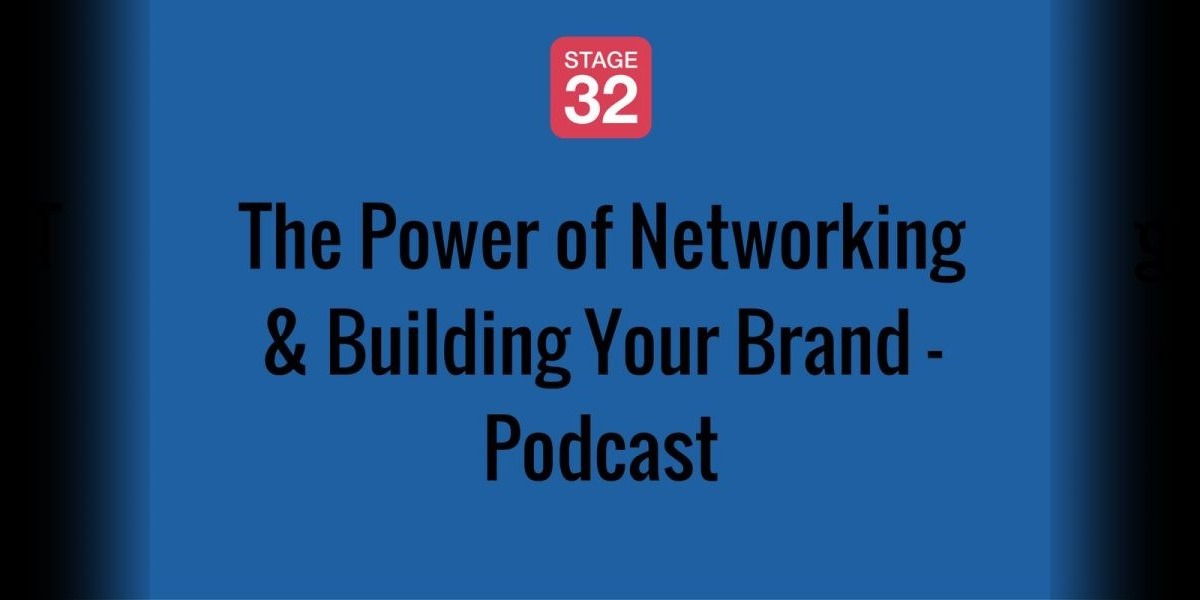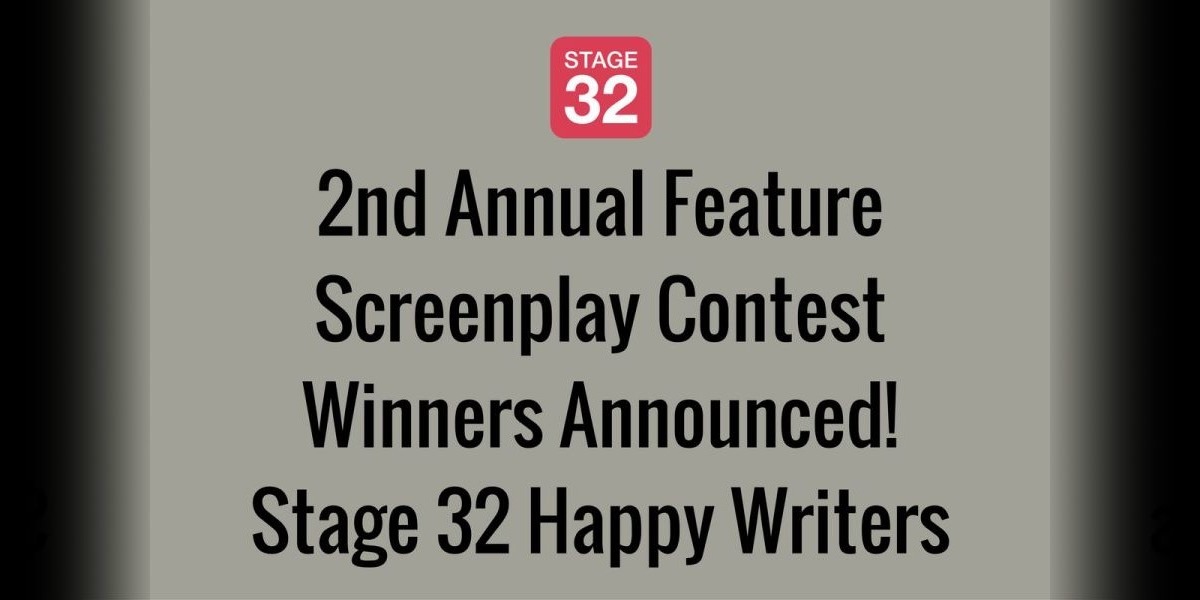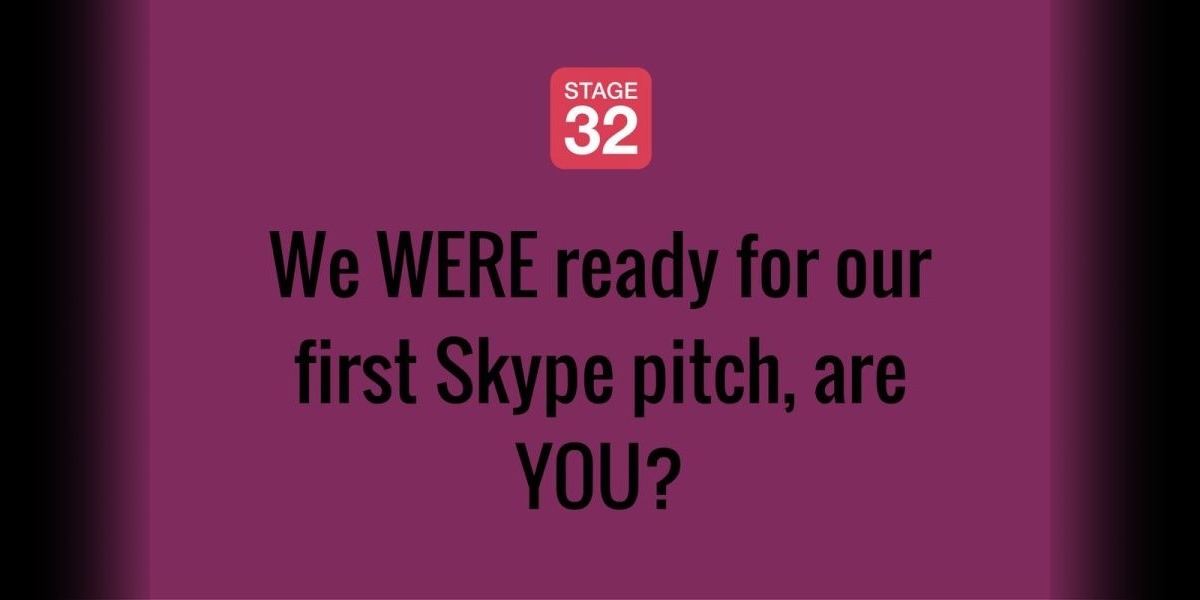We WERE ready for our first Skype pitch, are YOU?
Initially, the e-mail we received about writing a blog for the site was met with a slight sense of trepidation. We’re not usually the type of people to over-share or over-expose ourselves.
Being on a website like Stage 32 for us is a victory in itself. We’re not the best at self-promotion, which is exactly the opposite of what you need to be if you want to work in this industry, we realize. So it’s in part about opening yourself up to the unknown, the dark abyss of having other people critique the work you’ve sometimes spent years with. We say “with” because our creations become part of us. It’s the little bird you need to kick out of its nest to watch it fly, something that can be a somewhat daunting experience.
Until a few years ago, we lacked every bit of confidence to do just that. A life-changing turn of events - losing around 100 lbs each - and the encouragement from many friends in the industry who told us our work IS good, it DESERVES to be read and maybe more important: every writer deserves to be heard, changed all that.
Your work IS part of you and you deserve to be heard.
So every writer’s uphill struggle loomed: the pitching process. Cold pitches (not the most favoured of choices), written pitches (don’t send attachments, send queries first!) and any sort of pitch you can think of. Because we’re self-taught, every uphill battle became an exploration in itself. What works, what doesn’t, the do’s and don’ts and now, the Skype pitch.
So, buckle up, get ready for a slight sense of over-exposing while (we hope) you pick up on some things we learned as we prepared and ultimately Skype pitched for the very first time.
Preparation is key: Which exec or company do you pitch to and why?
The analytical approach to pitch preparing (as we do with everything in life)
Whichever type of pitch (in person/written/skype/…) we have planned, we are the type of people who like to know what – or better yet who – we'll be up against. We’re not the writers who write something and then go all willy-nilly into the pitching process. If we were in the executive chair and had the “power” to choose the projects for a network or an agency, we’d go for the things WE would like to see first. Much like any project we are writing, we do our research when it comes to the executives we will be pitching to as well. We search IMDB(pro) for projects they’ve been connected to in the past, we search for articles on the industry related websites about the company they represent. We do our homework.
If you look at any exec’s IMDB profile, there will be actors, genres, subjects, that stick out from others. Certain things that obviously grab (this particular person’s) attention more than other types.
Long story short: you wouldn’t enter a 13 episode series you’ve created into a short film competition.
If we’re going to team ourselves up with someone, we want to make sure we team ourselves up with someone who knows what they’re doing and who knows where to go for the genre we’re working in, who is AS enthusiastic about the project as we are.
There have been times where we found a message in our mailbox in the nature of:
“Hey, my name is (so and so),
I’ve seen your work/sample/… on (this particular outlet),
Sounds like a cool project, let's work together, can you give me more info? I can take this project places!”
Obviously, that’s not exactly how the emails are usually worded, however it’s the idea of a random person in your inbox with a message like this that counts. When the first email like that hits your inbox as a writer who’s just beginning, there’s a sort of idealistic thought process of what these types of emails will get you:
1) See email.
2) Get super-duper excited; I’m telling all my friends, family, the neighbors and even that distant aunt I don’t really like that much…someone…wants…to work on MY PROJECT! *elation*
3) Send everything I have ever written to this person.
4) The project is picked up immediately (how could it not, really?!)
5) It becomes a huge success, we can now concentrate on only getting those projects out there that we really want to do and retire off the residuals (major bonus: I can probably send my kids and grandkids to an Ivy League university).
However, if we take the time to look into things and do our research, things are usually not colored that perfect shade of pink. We find that, as writers, life is riddled with uncertainty that is oftentimes what makes people give up their dreams in the end.
Will this person really be able to help me in my plight to get this project off the ground?
Does he/she really know what they’re doing?
Am I even going to hear from them again after I’ve send them my manuscript?
What if the person I’m sending my script to, completely disappears on me and I find out they’ve stolen my screenplay, put their own name on it and are now making it themselves?
What if…
Breathe…just breathe…
Those are all questions we have found ourselves thinking over the past few years. Very good questions, no doubt. A lot of these headaches mentioned above can be resolved by the Paracetemol (figure of speech) of having a structure and process you work with.
Only work with people you trust and reputable industry professionals. Ask for references if they randomly inbox you and ask for a contract if they make you promises.
After having read all of that, you can probably see why taking up our first Skype pitch was such a big step for us.
Then there it was… finally that realization *Cue “Rocky” theme*:
“We’re ready”
The advantage of having a support system of 500k creatives like Stage 32, is that you may find the courage in there to do what you always wanted, but never even dreamed of accomplishing. We were surprised at how reading other people’s stories helped us process our own thoughts and how it helped us in diminishing our fear of putting our work out on display. Surely, we had pitched to production companies before, but this was different.
The people on Stage 32 we contacted (both members and management) were all really supportive. They offered tips, gave us a few do’s and don’ts themselves and we were sent an email that helped us with the structure of a skype pitch.
Any questions or panic? Contact Stage 32’s Erik or the happy writer’s team: kudos for all the effort they put into making us feel comfortable!
The actual first Skype pitch AKA The most nerve wrecking eight minutes you’ll experience in a while.
Beware: eight minutes isn’t eight and a half minutes!
When the time is there, it’s there. If you want to prepare your Skype pitch, start well in advance and don’t assume you know everything just because you wrote the project.
When you are given a time frame, make sure you’re there on time. You should probably be a bit early. We were. We spent a good while positioning ourselves in front of the camera to make sure the exec wasn’t looking at two floating heads because the camera was aimed too high. You have a torso, use it to your advantage. We made sure we were comfortable well before the skype pitch started and we also made sure we weren’t wearing the same colored clothing as the background, (if your background is white, wearing a white outfit will make your body disappear in the background and, again, floating head syndrome).
We went into our skype pitch having printed off a diagram per comparison we could show the exec, listed similar shows, worked hours on end on our logline (the thing we struggle with most, every.single.time!) We discussed a strategy and even wrote down a sort of personal guideline.
And then the (Skype) phone rings….
Our first Skype pitch happened last Saturday with Starz’ Kirsten Barnett. When you only have eight minutes to not only convey your story, but also to get an idea of who you’re talking to and to give them an idea of who you are, there isn’t much time to chit-chat. However it does give you time for that all-important first impression. We found Kirsten to be kind, helpful and supportive. She allowed us to tell our story and explain the intricacies in a way we wanted.
Did everything go the way we planned it? Of course not.
Was it what we had hoped for? Absolutely.
The way we see it, everything from the first letter you put on paper to the last second of the ending credits is a learning process. Especially as a creative person, there will be times in your life when you feel like you want to throw in the towel. We’ve had those times. In fact, we’re just coming out of one of the worst creative periods in our lives. For eight months straight, we couldn’t get a word on paper. The reason why doesn’t matter at the moment, what matters to us is that we know now that we can overcome those difficulties by just continuing to try our hardest. Those eight months, like every other moment in life, passed. They passed slowly but now we feel revived and more creative than we had been in a long time.
“Things I wish I said: A matter of self-reflection”
Like we said, before we started we had created a guideline of things we definitely couldn’t forget. We weren’t really nervous for the pitch… that is until the phone rang. Nerves kicked in and plans went out the window, but we made it through. We introduced our project to the best of our abilities. We tried to limit (awkward) silences as much as possible, even though we weren’t always successful.
Things we are happy about:
- Our preparation for the pitch: we had everything we needed when we needed it.
- We interacted with Kirsten. It wasn’t just us speaking, communication went both ways.
- Our broad explanation of what the project entailed.
- We tag-teamed our way through it.
- We allowed time for the exec to ask questions about the project.
Things that could have gone better for us in hindsight:
- Instead of a textualized guideline, we wish that part of our preparation would have been more brief, so that we could tick off the boxes in our heads more fluently (short and concise).
- Nerves got to us. We forgot certain aspects of the story in the middle of our pitch.
- We were too vague in some aspects of our pitch, especially the part where we introduced some of the characters.
- As it was our first pitch, we didn’t know when to start so we wasted valuable time in the beginning.
- Timing in general: if necessary we’ll try to time out the majority of our pitch in a three/four minute section for our next pitch beforehand, so that we know how much info to give in that amount of time.
Two of us in an eight minute skype session meant there were about two and a half to three minutes each to speak about our project.
The first minute is your introduction (keep it basic, less about you, more about your project). Then it's your time to shine.
When pitching in person, we always like to give the exec some time to get some questions in or comment on things they find interesting. That’s why we spent the last few moments of the pitch answering Kirsten’s questions. We realize maybe that’s not everyone’s cup of tea, but we feel it makes the pitching process less static and can give you a different point of view on your project and what is important for execs.
Then it’s over: your time is up. You say quick farewells and hope for the best. You can only hope the exec sees in your project what you want them to see in it. We will know in a few weeks how the interaction between us and Kirsten went when we get the feedback.
We’re happy we took the plunge and went for it.
It’s a waiting game and we’re all playing it.
The pitching process can be long, hard and most of all daunting. Don’t take a pass personally at any time in your writing career. Grasp every opportunity to learn as an added bonus and experience. If you receive a pass, ask yourselves: “What could I do differently, to improve my chances next time? Was it my pitch or was it just not the time for this company to be producing this material?”
Think of every step you took along the way to get to that material out there. If in doing so, you find that ultimately you did the best you could with the knowledge or experience you had at that time, don’t beat yourself up over it.
It’s an added experience, an added something in life you can not only draw lessons from, but also use to hone your experience. You took the next step to turning yourself into better writers, better pitchers. YES, even stronger in life.
We would like to thank Stage 32 for providing us with a platform to share our thoughts about Skype pitching. We’re happy to connect with everyone.
Now… let’s go out and create the next chapter of your next great story!
About Evelien and Dorien Verheyen:
Dorien and Evelien Verheyen have been writing together for over almost two decades and have been a duo since conception.
The original plan was to become graphic novel artists, but when it turned out stick figures were the best “graphics” they could do, they decided to turn their attention to the thing they were good at: writing.
At 28, Dorien and Evelien have several published articles in local and national outlets and were also at the helm of “The Sitel Times”, a satirical company gazette.
They have also been featured on national TV with a one hour documentary about their lives, produced by Eyeworks International and have appeared on several other shows, documentaries and student films.
Dorien and Evelien are the sole runners of the highly successful Battlestar Galactica Museum website, which garners an audience of several millions annually. It also has the support of many of the show’s cast and crew members and offers industry-related articles, interviews and exclusives.
Dorien and Evelien write screenplays in multiple genres and are also available for rewrites and writing assignments and have various projects in different stages of production.
On the side, Dorien & Evelien also do PR work and web design for several production companies, entertainment websites and actors, including “Interstellar” and Netflix’ “Travelers” actress Leah Cairns. For more info on that, go to http://twinematography.puzl.com/. They also work in theatre.
In the little time off they take from “The Pen”, Dorien and Evelien can be found geeking out at comic cons, or wandering around “people watching” with their beloved fluff ball Kaiya.
Rated 96% identical through facial recognition scans and various other “studious” tests, you could say it doesn’t get much more identical than this. In their work as writers, it helps them being a collaborative, well-oiled machine.
Like this blog post? Please share it on social media (Facebook, Twitter, LinkedIn, email etc) by using social media buttons at the top of the blog. Or post to your personal blog and anywhere else you feel appropriate. Thank you.
As always, we welcome thoughts and remarks on ANY of the content above in the Comments section below...
| The Power of Networking & Building Your Brand - Podcast |
| 2nd Annual Feature Screenplay Contest Winners Announced! Stage 32 Happy Writers |
Search Stage 32 Blog
There are now 4040 blog posts for you to enjoy. Search them all by tags below.
Acting, Advice, Cinematography, Coffee & Content, Composing, Contests, Distribution, Featured, Filmmaking, Financing, Inspirational, Networking, Producing, Screenwriting, Success Stories, Tips, Trending,Relevant Tags
Recommended Articles

Green Lights and Grey Areas: Expanding Creative Collaboration in Publishing

Insider Intel: 2026 Predictions

Insider Intel: 2025- Your Year of Breakthroughs (+ What's Coming in 2026)
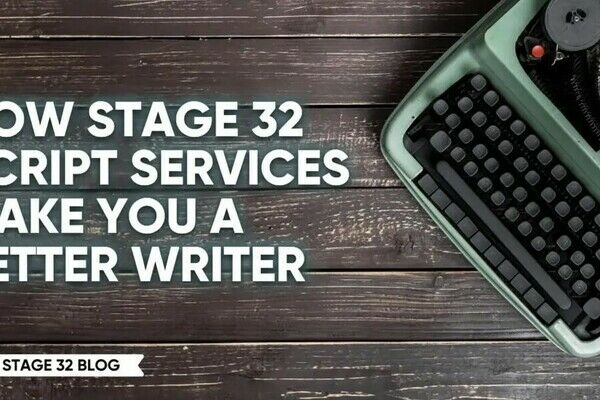
How Stage 32 Script Services Make You A Better Writer

Coffee & Content: The Genius of Weapons and How to Know When Your Script Is Ready

Don't Let the Momentum of November Write Club Die: How to Stay Active Into 2026 & Beyond!

Coffee & Content: Why Your Next Step Matters More Than the Perfect Step

Stage 32 Featured at the 43rd Torino Film Festival!
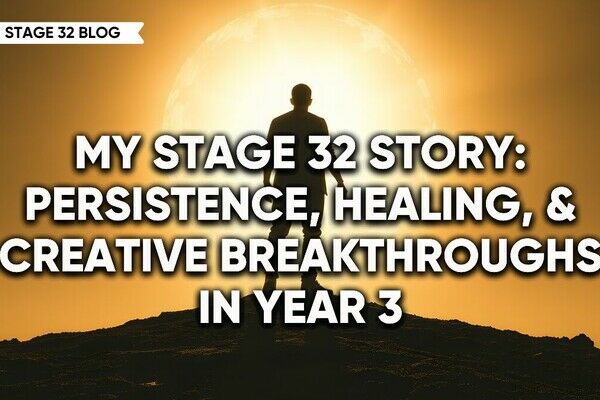
My Stage 32 Story: Persistence, Healing, & Creative Breakthroughs in Year 3



